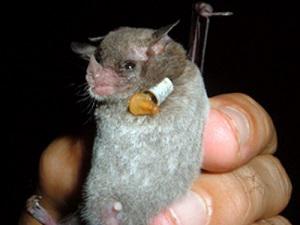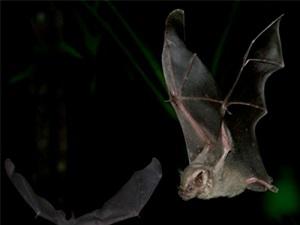Carlos Alberto Mancina
Other projects
9 Feb 2012
Integrating Research and Education for the Conservation of Cuban Bats and their Habitats
10 Aug 2015
National Survey and Action Plan for the Bats of Cuba: Generating a Long-Term Strategy for Conservation
The aim of this project is study the effect of the hurricanes on the bat populations of the reserve.

In Cuba, and other Antillean islands, the destruction of natural habitats by human and natural causes could put many bat species at extinction risk. These mammals may be particularly vulnerable to stochastic natural events such as hurricanes.

In September 2008 the “Sierra del Rosario” Biosphere Reserve was affected by hurricanes Gustav and Ike, causing huge affectation to the vegetation. Although several aspects of the biology of Cuban bats are known, their habitat requirements and long-term changes of the populations remain unexplored. Since middle 90’ we began long-term monitoring of bat populations in the “Sierra del Rosario” Biosphere Reserve. Based on mist netting inventories and the acoustic monitoring of several vegetation patches, we have obtained information on the annual and seasonal fluctuations of the abundance of the most common species. We have also collected information on bat assemblage composition and use of habitat, among other things. This information represents an important data set to explore long-term response of bat populations to hurricanes in one of Cuba’s most conserved forest ecosystems of Cuba.
The aim of this project is study the effect of these hurricanes on the bat populations of the reserve. We will sample and compare abundance and other biological parameters of bat species in three sites affected by hurricanes. Knowing the effect on bat species to changes in their habitat is very important to design conservation strategies of these species and their habitat (e.g. foraging habitats and caves). This study would be useful to understanding and predicting the effect of hurricanes on the response of other Cuban terrestrial vertebrates with similar ecological requirements (e.g. birds). Long-term information about habitat use, diet, foraging behavior, reproduction, nocturnal activity, etc. will be an important contribution to the knowledge of these Cuban mammals.